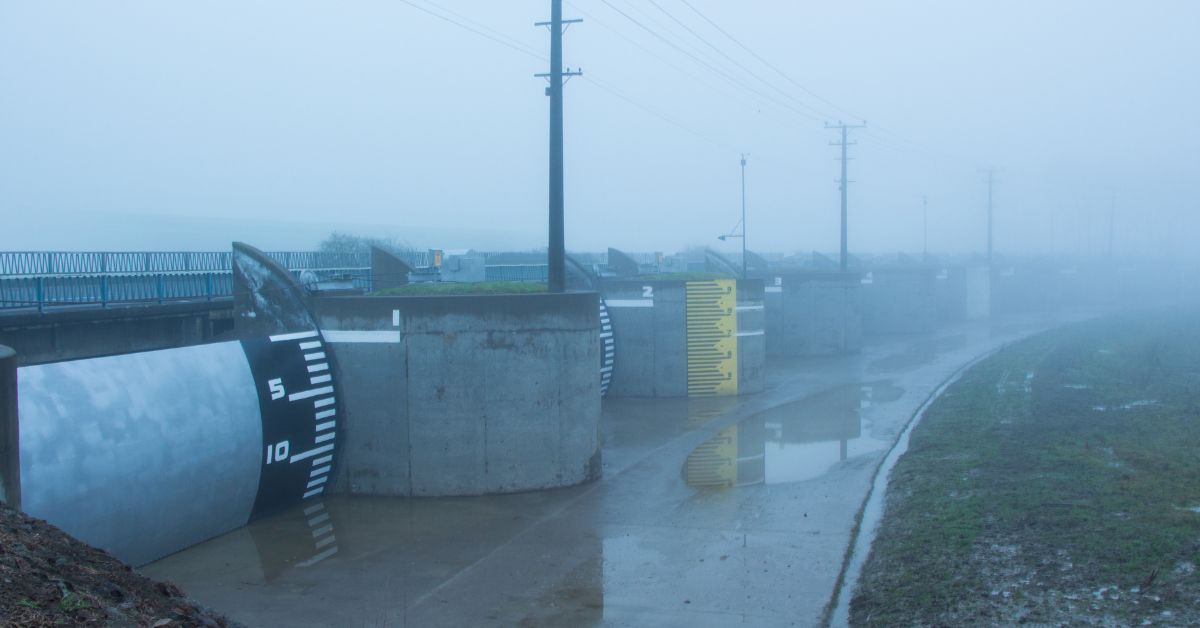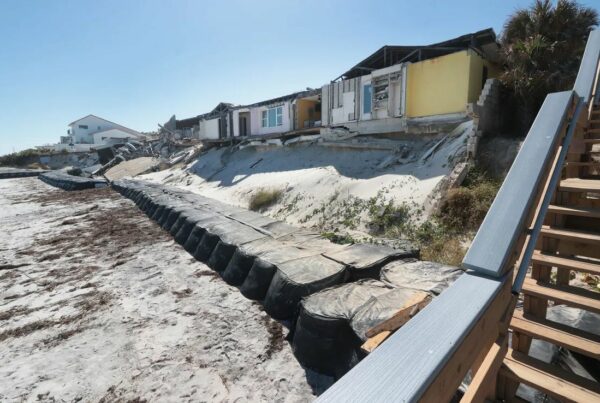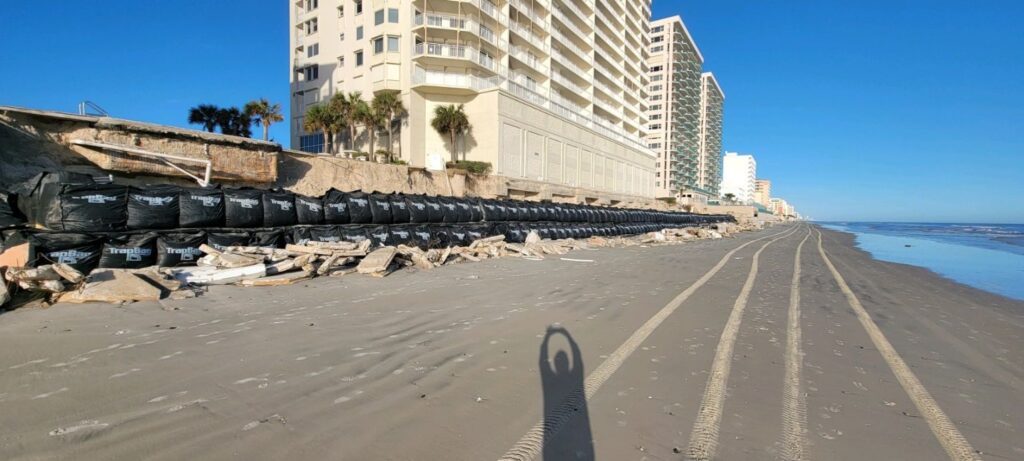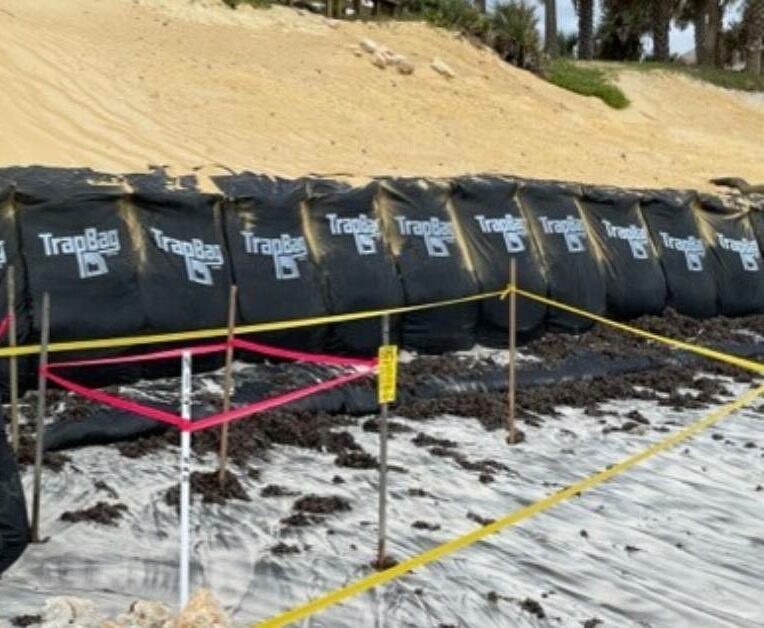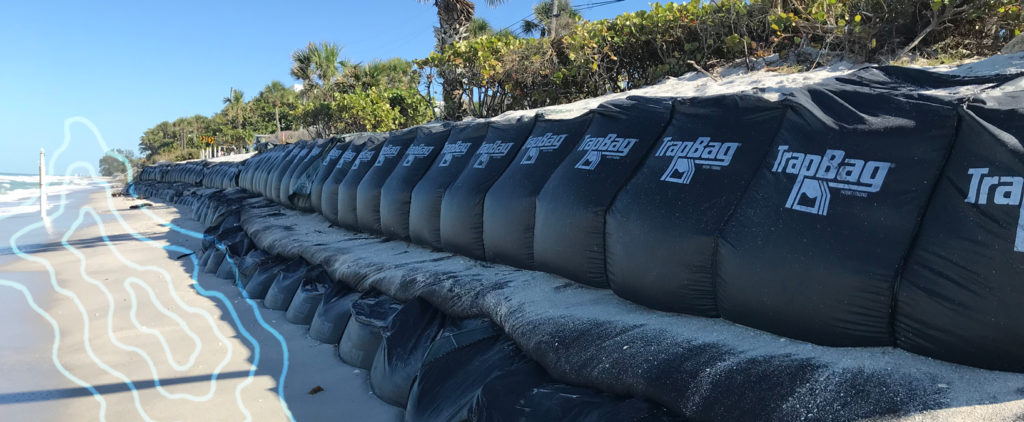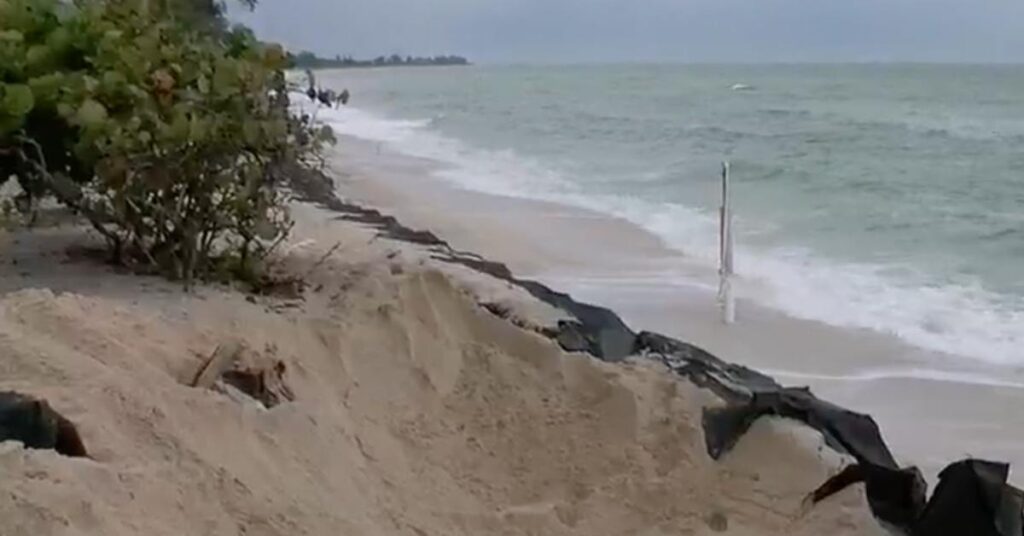TrapBag® Flood & Storm Surge Protection in Florida
Rapid-Deploy Flood Barriers
Water levels can rise in minutes during Florida’s infamous rainstorms. TrapBag® flood barriers can be deployed to sensitive areas during extended periods of heavy rain and withstand a river’s worth of water pressure.
Learn More »Erosion Barriers
TrapBag® protects Florida’s thousands of miles of coastlines and riverbanks from erosion that can threaten communities and make future flood damage worse.
Learn More »Storm Surge Barriers
TrapBag® was designed in Florida with the state’s hurricane season in mind. These barriers hold back seawater during severe storm surges to keep buildings and people safe.
Learn More »Projects
Who We Serve In Florida
TrapBag® works with industries ranging from homeowners to Florida’s Department of Emergency Management to protect buildings and projects from flood and erosion damage.
Environmental Protection Services
Florida’s coastline faces constant pressure from hurricanes, storm surge, and erosion. Rising sea levels and tidal impacts put beaches and coastal ecosystems at continued risk.
Government agencies and environmental groups in Florida use TrapBag® cellular barriers to reduce erosion and help stabilize vulnerable coastlines before permanent damage occurs.
Learn More »Emergency Management Agencies
Time management is everything before a hurricane makes landfall. County and state emergency management departments rely on TrapBag® for rapid, dependable flood protection. The barriers can be deployed in hours instead of days and protect property and infrastructure in areas facing storm surges or flooding.
Learn More »Infrastructure & Coastal Engineering
TrapBag® barriers are a cost-effective way to protect infrastructure and the environment. Civil and coastal engineers across Florida use TrapBag® for stormwater detention to protect local water supplies during construction, as well as coastal flooding events.
Learn More »What's At Stake?
Hurricanes & Storm Surges
Mile for mile, Florida is one of the most hurricane-prone areas in the world. Communities across the state are vulnerable to storm surge damage. With major hurricanes becoming more common, the risk is only increasing.
Beach Erosion Threats
The constant wave action along Florida’s coastline leaves the whole state at risk of erosion. This can result in everything from beach loss to threats to coastal building damage and destruction. Beachfront buildings need a long-lasting method of preventing this damage in order to protect property and lives.
Inland Flash Flooding
If hurricanes make landfall or prolonged, large-scale storms strike near Orlando or Gainesville, inland lakes and streams are at risk of flash floods. These can cause hundreds of millions of dollars in damage and put people at risk.
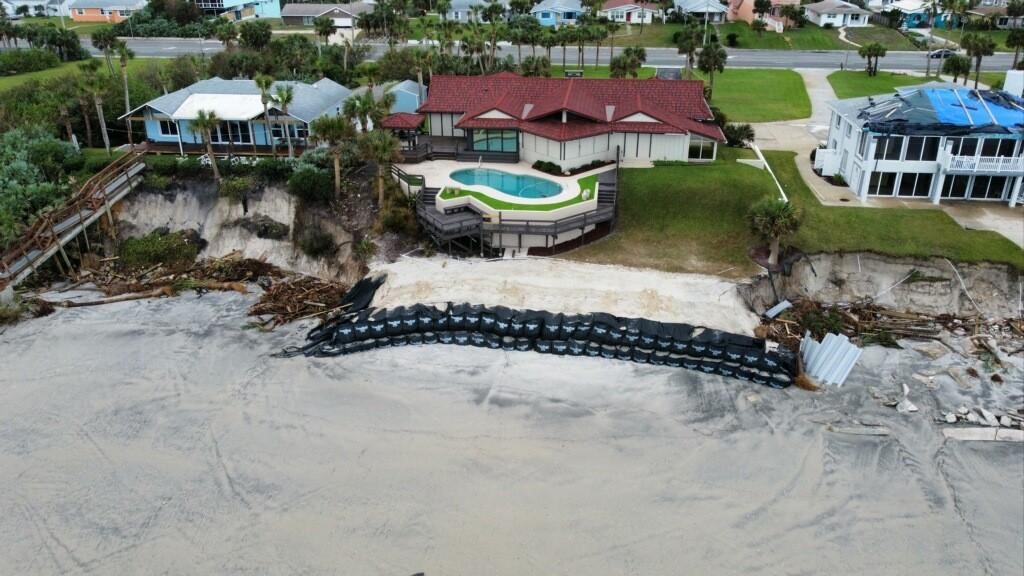
Why Choose TrapBag®?
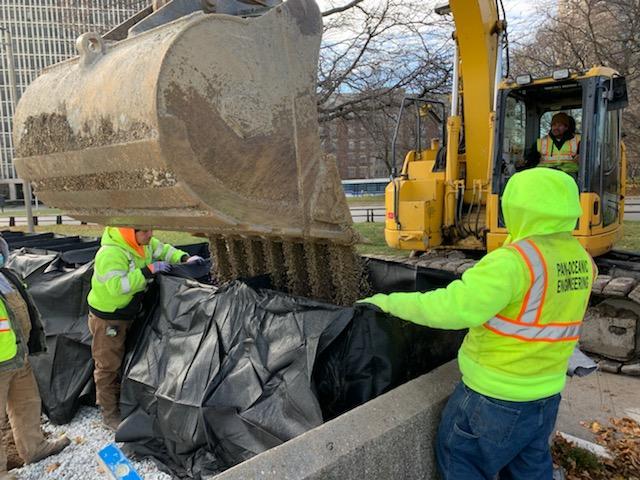
-

Fast Deployment
When every minute counts, you can deploy TrapBag® in hours, not days. For emergencies and planned projects, deploy TrapBag® when and where you need it most.
-

Reliable Strength
Our state-of-the-art geotextile creates a barrier that withstands wave action during flooding events, as well as the slow deteriorating effects of shoreline erosion.
-

Efficient Design
TrapBag® is designed for fast, easy storage, transport, and installation. It can be implemented on all types of terrain and scaled for the size of your project.
-

Tried & Tested
Thousands of miles of TrapBag® barriers have been deployed worldwide. The U.S. Army Corps of Engineers has also tested the barriers’ strength during major flooding conditions.
How TrapBag® Compares to:
Sandbags have been used for centuries to protect communities from flooding because they’re inexpensive and can be stacked to create taller barriers.
However, they aren’t ideal for anyone who doesn’t have a civil engineering degree or extensive emergency management expertise. Sandbags have a high margin of error that can cause them to give way when you need them the most. They’re also labor-intensive to fill and require more manpower than TrapBag® does, all with subpar levels of protection.
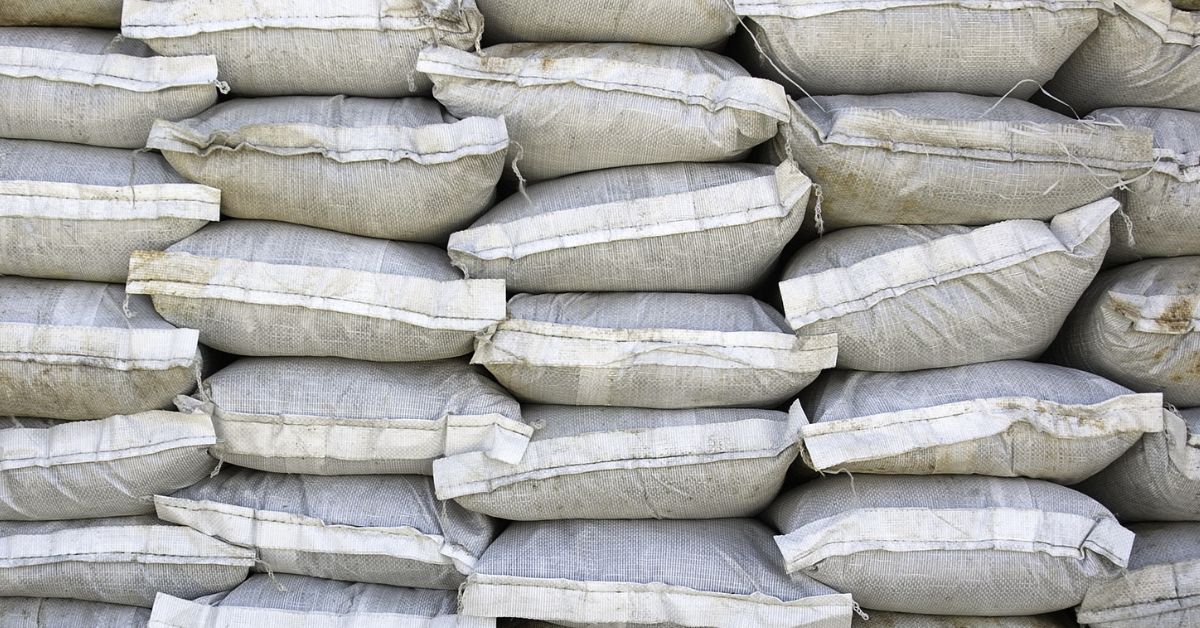
These barriers are designed to be filled with water and create enough weight and pressure to divert floodwaters away from buildings and structures.
However, most water barriers aren’t more than a few feet tall. They also can’t withstand wave action of any kind. TrapBag® barriers are engineered to take on wave action and start at 4 feet tall and are stackable for additional height if needed.
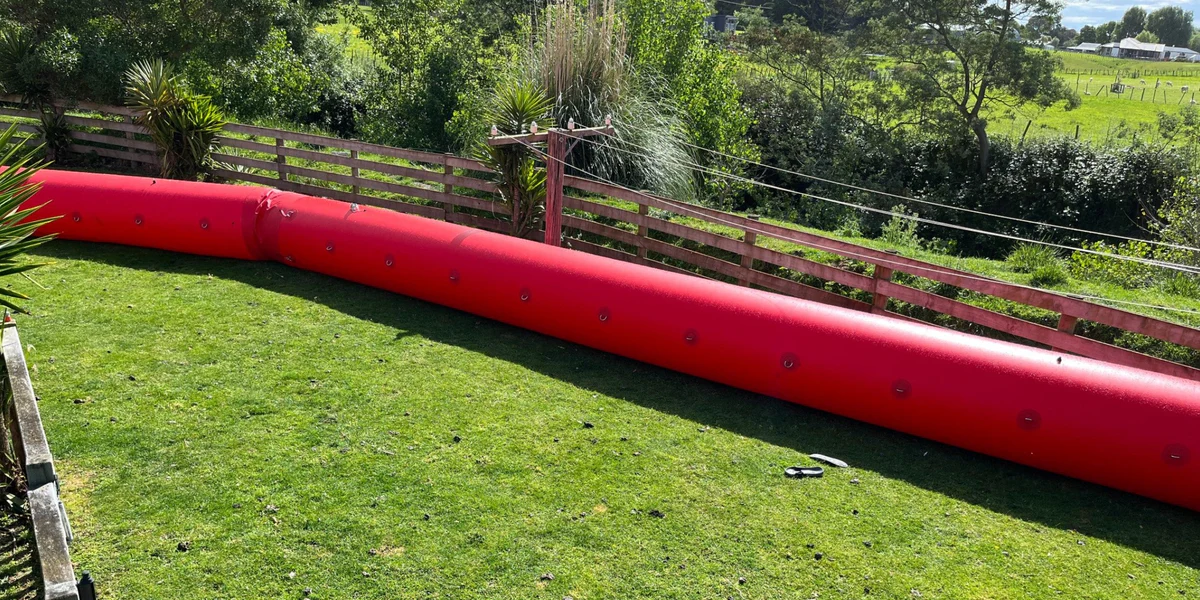
Flood-prone communities use flood walls to prevent damage from frequent flooding in particularly vulnerable neighborhoods.
While they’re effective, floodgates are too expensive and time-consuming for many communities. TrapBags can serve as temporary flood protection barriers to protect these areas during emergencies, as well as a floodgate system for a fraction of the total cost.
